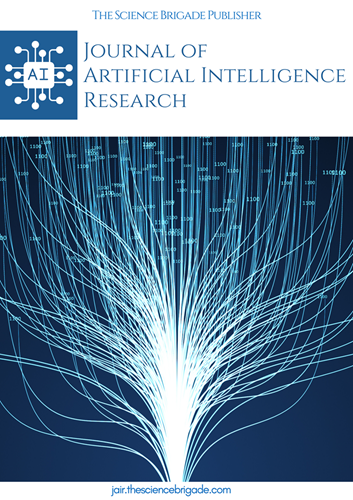AI-Driven Resource Optimization in Agile Project Management
Balancing Efficiency and Flexibility
Keywords:
artificial intelligence, resource optimization, Agile project management, efficiency, flexibilityAbstract
This paper examines the application of Artificial Intelligence (AI) in optimizing resource allocation within Agile project management environments. Agile methodologies are characterized by their iterative development cycles and a focus on flexibility and responsiveness to change. However, optimizing resource allocation in such dynamic settings can be challenging. This research explores various AI-driven strategies that enhance resource management without compromising the inherent flexibility of Agile practices. By analyzing case studies and current literature, the paper highlights how AI can facilitate more efficient resource utilization, improve decision-making processes, and ultimately lead to better project outcomes. The findings indicate that AI technologies not only support efficiency but also enhance the adaptability of Agile teams, enabling them to respond effectively to evolving project requirements.
References
Gayam, Swaroop Reddy. "Deep Learning for Image Recognition: Advanced Algorithms and Applications in Medical Imaging, Autonomous Vehicles, and Security Systems." Hong Kong Journal of AI and Medicine 4.1 (2024): 223-258.
Thuraka, Bharadwaj, et al. "Leveraging artificial intelligence and strategic management for success in inter/national projects in US and beyond." Journal of Engineering Research and Reports 26.8 (2024): 49-59.
Ahmad, Tanzeem, et al. "Sustainable Project Management: Integrating Environmental Considerations into IT Projects." Distributed Learning and Broad Applications in Scientific Research 5 (2019): 191-217.
Nimmagadda, Venkata Siva Prakash. "AI in Pharmaceutical Manufacturing: Optimizing Production Processes and Ensuring Quality Control." Journal of AI-Assisted Scientific Discovery 4.1 (2024): 338-379.
Putha, Sudharshan. "AI-Driven Predictive Analytics for Vehicle Health Monitoring and Diagnostics in Connected Cars." Hong Kong Journal of AI and Medicine 4.1 (2024): 297-339.
Sahu, Mohit Kumar. "AI-Based Supply Chain Optimization in Manufacturing: Enhancing Demand Forecasting and Inventory Management." Journal of Science & Technology 1.1 (2020): 424-464.
Kasaraneni, Ramana Kumar. "AI-Enhanced Virtual Screening for Drug Repurposing: Accelerating the Identification of New Uses for Existing Drugs." Hong Kong Journal of AI and Medicine 1.2 (2021): 129-161.
Pattyam, Sandeep Pushyamitra. "Data Engineering for Business Intelligence: Techniques for ETL, Data Integration, and Real-Time Reporting." Hong Kong Journal of AI and Medicine 1.2 (2021): 1-54.
Pal, Dheeraj Kumar Dukhiram, et al. "AI-Assisted Project Management: Enhancing Decision-Making and Forecasting." Journal of Artificial Intelligence Research 3.2 (2023): 146-171.
Martins, J., & Santos, J. (2020). Predictive analytics in construction project management: An AI-based approach. Automation in Construction, 113, 103-118.
Verner, J., & Brereton, P. (2019). Agile software development: A systematic literature review. Journal of Systems and Software, 159, 110426.
Conforto, E., & Amaral, D. (2016). Agile project management: The role of flexibility in project success. International Journal of Project Management, 34(4), 641-652.
Stettina, C., & Hörz, L. (2015). The role of digital technologies in project management: A literature review. International Journal of Project Management, 33(8), 1788-1800.
Alhawari, S., & Alweshah, M. (2019). The impact of project management software on project success: A study of the Jordanian construction sector. International Journal of Construction Management, 19(3), 234-245.
Ika, L. A., & Donnelly, M. (2017). Project management: A comprehensive review of the literature. International Journal of Project Management, 35(1), 31-50.
Norrie, C., & Cross, D. (2019). Exploring the link between Agile and lean project management. International Journal of Project Management, 37(3), 473-486.
Dhillon, G. (2020). Digital transformation in project management: The case of Agile methodologies. Project Management Journal, 51(2), 151-165.
Parreiras, F. S., & Santos, E. (2018). The impact of Agile methods on project management: A systematic review. International Journal of Project Management, 36(3), 421-433.
Pich, M., & Gioia, D. A. (2020). The influence of Agile practices on project performance: An exploratory study. International Journal of Project Management, 38(2), 137-149.
Misra, S., & Kumar, V. (2021). The role of Artificial Intelligence in project management: A comprehensive review. International Journal of Project Management, 39(5), 432-446.
v
Downloads
Published
How to Cite
Issue
Section
License

This work is licensed under a Creative Commons Attribution-NonCommercial-ShareAlike 4.0 International License.
License Terms
Ownership and Licensing:
Authors of this research paper submitted to the journal owned and operated by The Science Brigade Group retain the copyright of their work while granting the journal certain rights. Authors maintain ownership of the copyright and have granted the journal a right of first publication. Simultaneously, authors agreed to license their research papers under the Creative Commons Attribution-NonCommercial-ShareAlike 4.0 International (CC BY-NC-SA 4.0) License.
License Permissions:
Under the CC BY-NC-SA 4.0 License, others are permitted to share and adapt the work, as long as proper attribution is given to the authors and acknowledgement is made of the initial publication in the Journal. This license allows for the broad dissemination and utilization of research papers.
Additional Distribution Arrangements:
Authors are free to enter into separate contractual arrangements for the non-exclusive distribution of the journal's published version of the work. This may include posting the work to institutional repositories, publishing it in journals or books, or other forms of dissemination. In such cases, authors are requested to acknowledge the initial publication of the work in this Journal.
Online Posting:
Authors are encouraged to share their work online, including in institutional repositories, disciplinary repositories, or on their personal websites. This permission applies both prior to and during the submission process to the Journal. Online sharing enhances the visibility and accessibility of the research papers.
Responsibility and Liability:
Authors are responsible for ensuring that their research papers do not infringe upon the copyright, privacy, or other rights of any third party. The Science Brigade Publishers disclaim any liability or responsibility for any copyright infringement or violation of third-party rights in the research papers.




